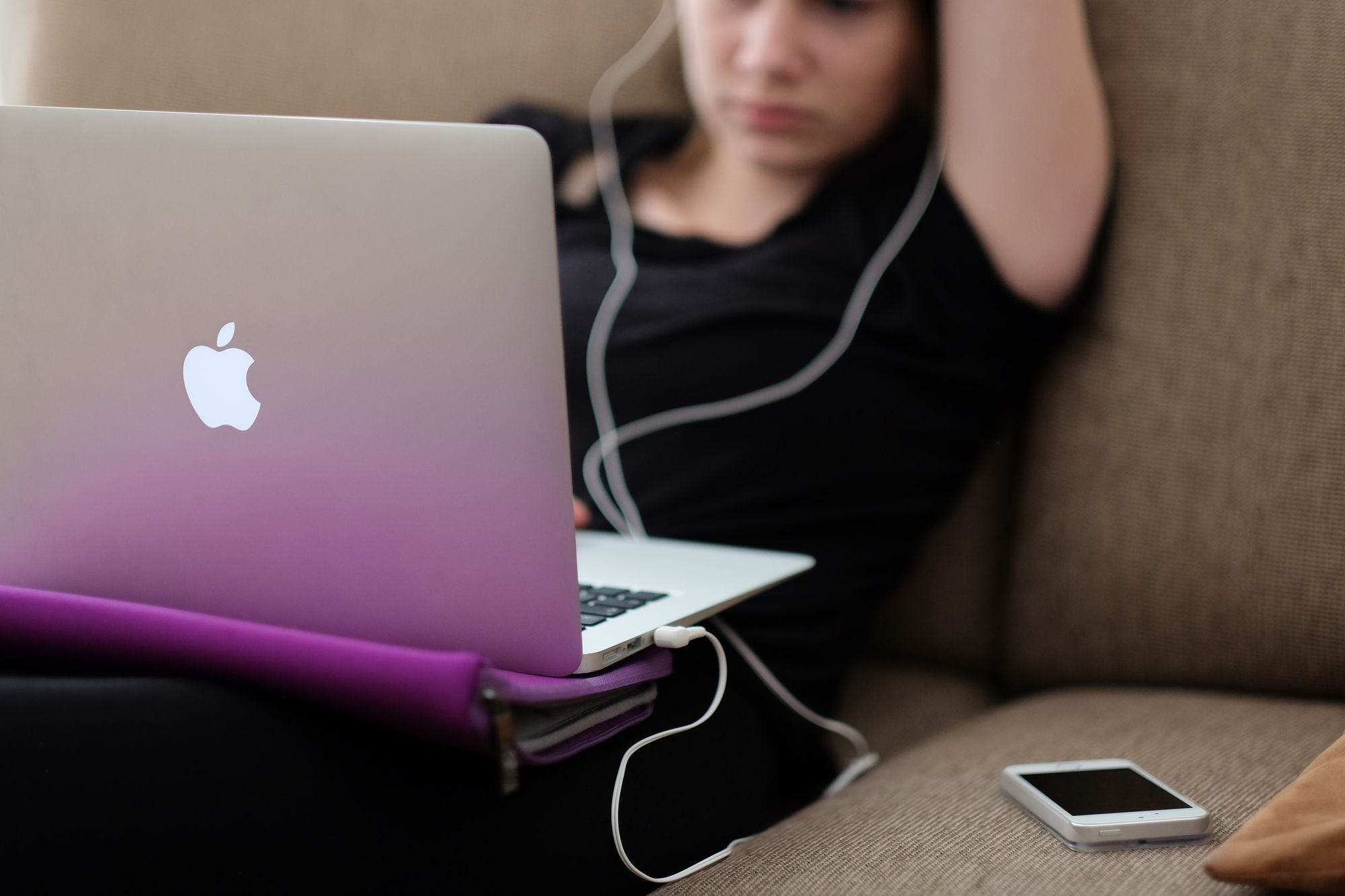
It’s a sensitive subject at any age. Should we be talking to kids about pornography? How can we get the conversation started? We share advice from the experts to help you get started
It was set to be the first block of its kind anywhere in the world, yet only a third of us thought it would work.
In October 2019, it was announced that the UK ‘porn block’ (also dubbed the ‘porn ban’) would be dropped after repeated pushes back. Originally designed to stop children and teens viewing adult materials online, the new measures were first promised in 2015, came into law in 2017, and should have been rolled out in 2018. Following repeated delays, it has been confirmed that the controversial system has been dropped.
The now discarded policy would have required all viewers to provide age identification before being allowed to view pornographic material. Sites refusing to implement the checks would have been blocked. Thanks to legal, technical, and practical difficulties, the controversial plans have now been scrapped.
Alongside privacy concerns raised as some worried that companies would be able to track our viewing habits, risking potential data links and blackmail opportunities, bigger concerns were raised over the mixed messages this could be sending to underage viewers.
For younger viewers, experts expressed concern that children and teens may be less likely to come forward if they viewed distressing or upsetting material, for fear they may be in trouble for breaking the law. While for 16 and 17 year old’s, the restrictions themselves risked feeling contradictory, as they risked sending the message that it’s ok for them to do the deed itself – as long as they don’t watch others online.
While many parents supported the proposed ban, critics have pointed out that large social media sites such as Reddit, Instagram, Twitter, and Facebook would have been exempt from the adult content block. A past study revealed as many as four in five students do not feel social media companies do enough to protect them from porn, bullying, and self-harm.
Further critics pointed out that teens would easily have been able to bypass the proposed blocks thanks to virtual private networks (VPNs) which are available easily and often for free, which can disguise the users location.

Underage viewers and the need for open communication
According to a 2016 study commissioned by the NSPCC and the children’s commissioner for England, 53% of 11-16-year-olds have seen explicit material online, 94% of which have seen it by the age of 14. But is it the act of young people viewing pornography that has us worried, or is it the lack of open, honest dialogue that is the real cause for concern?
According to one poll, 75% of us want our children to be taught about the impact of pornography, compared to just 7% who are opposed to the move. A further 71% believe there should be lessons on sexting, 86% on sexual consent, and 82% believe there should be lessons on violence and abuse in relationships.
With young people most likely to find pornographic materials accidentally (28%) through methods such as pop-up adverts, concerning numbers of young people were revealed to believe porn depicted realistic portrayals of sex. 53% of boys and 39% of girls believed porn to be realistic, with 39% of 13-14-year-olds and a fifth of 11-12-year-old boys saying they wanted to copy behaviours they had seen.
Studies have shown that young people who have been exposed to sexually explicit material are at greater risk of developing unrealistic attitudes about sex and consent, and negative attitudes towards roles in relationships. It can also lead to more casual attitudes towards sex, risking riskier sexual behaviour, unrealistic expectations of body image, performance, and relationships.
Whether young people are searching activly for pornography, or stumble across it by accident through pop-ups, adverts, or misleading links, it’s important to help them feel able to speak up about what they have seen, as well as to better understand the impact porn can have on them and their relationships.
No matter what age, children naturally look to their parents and caregivers for help and advice. Whilst talking about pornography may feel uncomfortable, awkward or challenging, being open and acknowledging this can be a positive first step towards talking about these sensative but vital issues.
It's important to have regular conversations with your children, but we understand that sometimes conversations about certain things can be difficult or awkward.
— NSPCC (@NSPCC) October 23, 2019
That's why we're here to help, for more info & advice, visit: https://t.co/MpoKLWUf9Y pic.twitter.com/Zd2tDdbRuo
How to talk to children and teens about porn
Talking to children about pornography can be challenging, but it’s important to be open and honest. The NSPCC have put together some advice on how you can talk to your child about online porn, as well as this great guide on how you can help keep your child safe online.
Here, the NSPCC share their top tips for talking about pornography with young people, and why it’s important to keep communications open.
Feeling embarrassed - acknowledge that your child may feel embarrassed or worried about talking to you. Reassure them that it’s ok to feel curious about sex, and they can always talk to you.
Online porn isn’t real - explain that sex in porn is often different to sex in real life. People are acting so things are exaggerated. The lines between consent, pleasure and violence are often blurred. It’s important for young people to know the difference. Talking about healthy relationships can be a way of highlighting these differences.
Porn offers a very different, often unrealistic view of relationships. Talk to them about what makes a positive, healthy relationship, and ask them what they think makes a good relationship. Prompting them with discussions around respect, personal boundaries, and consent can help.
It’s ok to not watch porn - not everyone watches porn. Some young people feel pressured to watch. Explain that while some people do watch porn online, not everyone does and it’s not something they have to do. It’s ok to not want to watch or do anything that makes them feel uncomfortable. They should never feel pressured or forced into anything.
Share safe places they can get information about sex and relationships - if you’re worried that there may be any areas your child may feel uncomfortable talking to you about, there are safe places online where they can get more information and help. Try Childline and find out how you can help them stay safe online with the NSPCC website.
For many, searching for porn is a natural part of exploring their exauality. 82% of young people believe it’s important to learn about the impact of pornography as part of relationships and sex education.
When we refuse to talk about porn, we risk demonising it. By avoiding the subject, we avoid vital chances to reassure under 18s that they can open up and speak out if they are concerned about what they have seen – regardless of if they have purposefully sought it out, or stumbled across it.
For more information on how you can talk to children and teens about porn, check out the NSPCC. For more information on how you can help your child or teen stay safe online, check out Counselling Directory’s guide to helping young people stay safe online.

